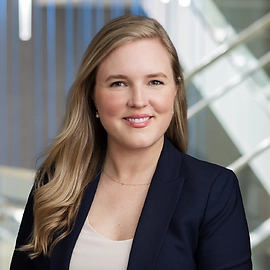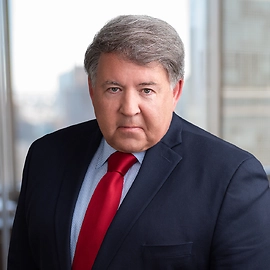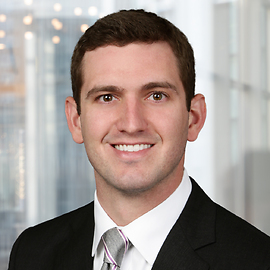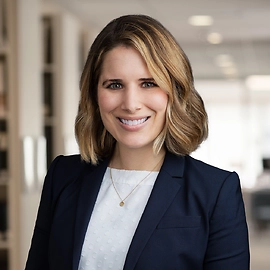On April 8, 2021, the U.S. Department of Justice (“DOJ”) announced the first charges brought in connection with alleged fraud on the Accelerated and Advance Payment Program, administered by the Centers for Medicare & Medicaid Services (“CMS”).[1] According to the indictment, Francis Joseph, M.D., a Colorado physician, has been charged with misappropriating nearly $300,000 from three different COVID-19 relief programs: the Accelerated and Advance Payment Program, the Provider Relief Fund, and the Paycheck Protection Program.[2]
Accelerated and Advance Payment Program
The Accelerated and Advance Payment Program is intended to provide emergency funds by way of expedited payments to health care providers and suppliers when there is a disruption in claims submission or claims processing. While CMS has historically utilized this program to provide targeted relief in response to national emergencies or natural disasters affecting certain portions of the country, the program was expanded in March 2020 to apply to a broader group of Medicare Part A providers and Part B suppliers nationwide due to the financial impact of COVID-19.[3]
According to the indictment, Dr. Joseph allegedly submitted an Advance Payment Request Form for a medical practice of which he had relinquished control, and then transferred approximately $92,000 from the medical practice’s operating account to a personal bank account (approximately $87,000 of that amount was paid by the Medicare Administrative Contractor as an advance payment the previous day).
Provider Relief Fund
The Provider Relief Fund is a $178 billion measure appropriated under the Coronavirus Aid, Relief, and Economic Security (“CARES”) Act that offers aid to providers who were financially impacted by COVID-19 and treatment and other assistance to individuals suffering from COVID-19.
The indictment marks the second time that DOJ has brought charges related to misuse of Provider Relief Fund distributions (DOJ announced the first charges in February 2021 against a home health provider). According to the indictment, Dr. Joseph’s former medical practice met the criteria for a Provider Relief Fund distribution of $31,782, but Dr. Joseph allegedly transferred those funds from the medical practice’s operating account to a personal bank account.
Paycheck Protection Program
The Paycheck Protection Program is a COVID-19 relief program that allows qualifying small businesses and other organizations to receive loans with a maturity of two years and an interest rate of one percent. Paycheck Protection Program loan proceeds must be used by businesses on payroll costs, interest on mortgages, rent, and utilities. The relief program allows the interest and principal on the loan to be forgiven if the business spends the loan proceeds on permissible expense items within a designated period of time after receiving the proceeds, and uses at least a certain percentage of the loan proceeds on payroll expenses.
The indictment alleges that Dr. Joseph submitted a falsified Paycheck Protection Program application that sought a loan for approximately $179,999 and made a number of misrepresentations, including that he was the owner of the medical practice (he had been terminated two months prior to submitting the application), that he “supervised 34 employees with an average monthly payroll of approximately $72,000,” that the practice had not received another Paycheck Protection Program loan (it had), and that “the funds will be used to retain workers and maintain payroll or make mortgage interest payments, lease payments, and utility payments” as required by the Paycheck Protection Program.[4] After the loan was approved and funded, Dr. Joseph allegedly used the loan proceeds, which were deposited into an unofficial business bank account that Dr. Joseph opened in the name of the medical practice shortly before his termination, for personal travel and home improvements.
Dr. Joseph is also charged with making false statements in a bankruptcy petition filed on behalf of the medical practice where he allegedly failed to disclose all bank accounts and assets.
Expect Heightened Enforcement Ahead
As described in DOJ’s March 26, 2021, summary report on COVID-19-related enforcement activity (covered here), federal prosecutors have led a historic enforcement initiative to detect and disrupt COVID-19-related fraud schemes. With DOJ continuing to intensify its fraud enforcement efforts in connection with COVID-19 relief programs, individuals and businesses that have received relief funds should expect enhanced scrutiny from government agencies for the foreseeable future and be prepared to demonstrate that relief funds were obtained and disbursed in accordance with the terms and conditions of the relevant relief program.
* * *
[1] Colorado Physician Charged for Misappropriating Thousands from Three Different COVID Relief Programs, Department of Justice Press Release, Apr. 8, 2021, https://www.justice.gov/opa/pr/colorado-physician-charged-misappropriating-thousands-three-different-covid-relief-programs.
[2] United States v. Joseph, Indictment, 21-cr-00083 (D. Colo. Mar. 17, 2021), https://www.justice.gov/opa/press-release/file/1385346/download.
[3] CMS Announces New Repayment Terms for Medicare Loans made to Providers during COVID-19, Centers for Medicare & Medicaid Services Press Release, Oct. 8, 2020, https://www.cms.gov/newsroom/press-releases/cms-announces-new-repayment-terms-medicare-loans-made-providers-during-covid-19.
[4] See supra note 2, at *15.
Blog Editors
Authors
- Member of the Firm
- Board of Directors / Member of the Firm
- Member of the Firm
- Member of the Firm



